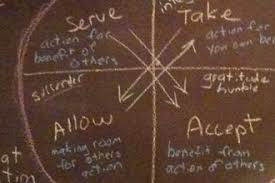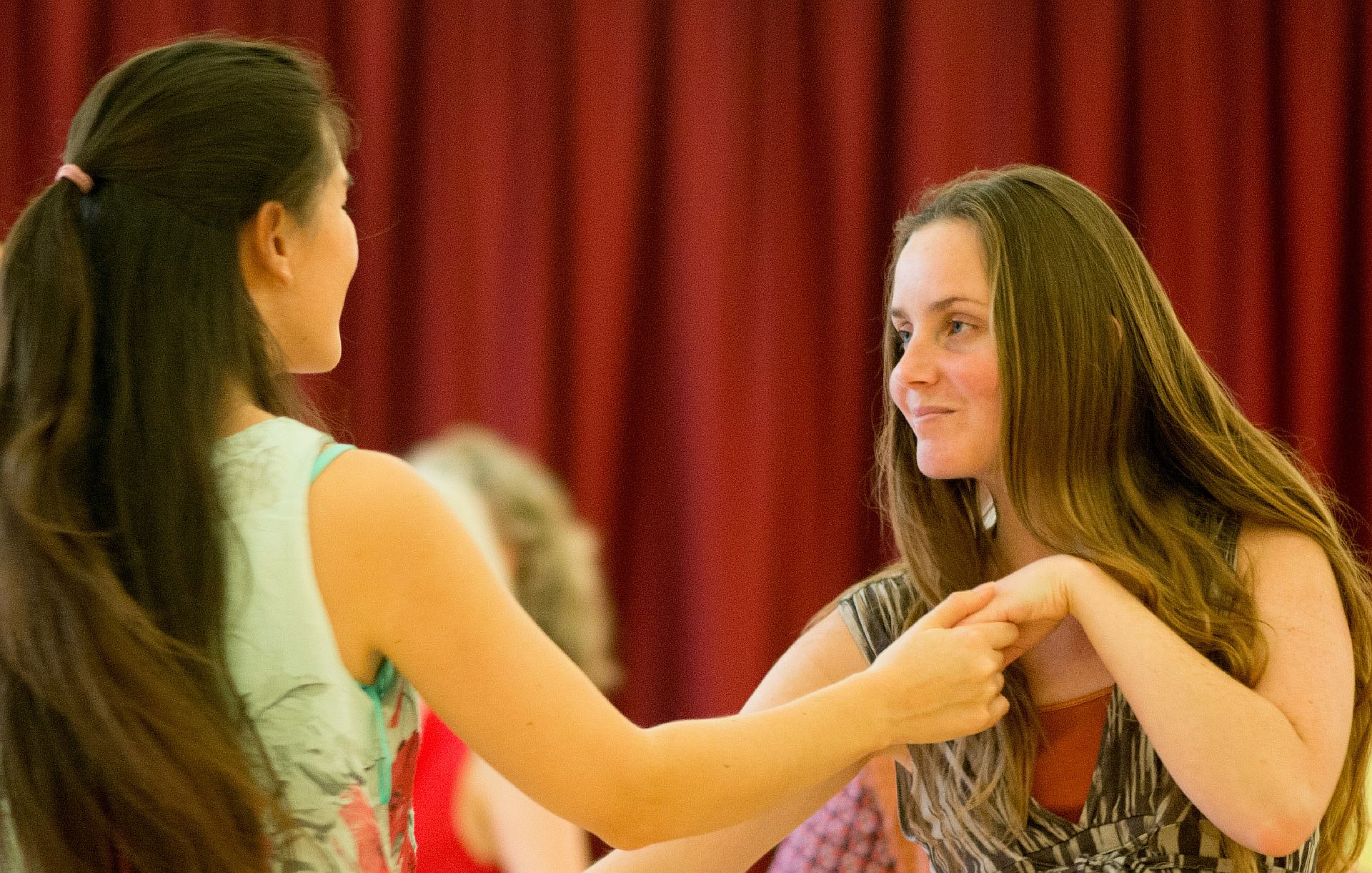(Julia Hancock – www.heartnova.com – November 2023)
The way we ask for what we want plays a pivotal role in how we navigate and experience all our relationships. The Wheel of Consent created by sex educator Betty Martin, is a powerful model and practice which gives us tools to navigate creating agreements safely and skilfully. This is a transformative approach to communication and connection.
Understanding the Wheel of Consent
The Wheel of Consent describes four key roles: Give, Receive, Take (Initiate) and Allow (Permit). By exploring these roles, we gain understanding of the dynamics within us, and how to safely navigate communicating with another person or people. The invitation is to get clear on what we want verses what we are willing to give, and to notice the difference between our generosity and when we have reached our limit of what we can offer.
Asking is Inherently Vulnerable
When we truly ask for something we want and we are not demanding, we realise we may or may not receive it. We may be offered part of what we want, or at a later time, or the person may need more clarification from us before they know what we are asking for. The answer could be a direct “no”. (A statement that comes to mind is “No is a full sentence”!) For this reason, asking can feel inherently vulnerable; because we don’t know what the response will be. Learning to allow the vulnerability which may be experienced is part of the art of asking in a gentle. respectful way, rather than the imposing nature of demanding.
Entitlement as a Shadow Survival Trait
Humans have desires and needs! Most of us did not have an education in creating healthy agreements, or role models to embody this for us. We may have learned behaviour patterns to get our needs met by other means…One option is to demand what we want. This can feel less vulnerable because we may not consider the possibility we don’t get what we want, but it’s not asking. When we hold a demanding, entitled position we’re not ware of, or caring towards the other persons’ capacity, limits and needs.
Entitlement is seen as one of the Shadow aspects in The Wheel of Consent, and is positioned outside the realm of healthy agreement-making and consent. In the process and practice of learning how to create consensual agreement, we may realise how we have behaved without these skills. Recognizing entitlement as a survival trait allows us to acknowledge it without judgment. By cultivating self-awareness and compassion, we can begin to dismantle entitlement, fostering an environment where asking becomes an act of authentic vulnerability rather than a power play.
Capacity to Listen
Asking requires a profound capacity to listen – not just to the words spoken, but to the non verbal body-language and emotions beneath the surface. This include listening first to ourself, to know what is wanted and if we are also wanting to actually ask for it. It also involves really listening to the other’s response. True understanding emerges when we engage in active, empathetic listening, creating a space where individuals feel heard and valued.
Impact of Tone of Voice
Our tone of voice is a powerful tool that can either enhance or hinder the act of asking. A gentle and sincere tone fosters an atmosphere of safety and receptivity, promoting open communication. Conversely, a demanding or aggressive tone can create tension and resistance, hindering the collaborative spirit of asking. The Polyvagal theory explains much about our mammalian responses and how we can feel safer and more harmonious in our relationships.
Human Desire to Help
We may find that many or most people actually do want to help, and do enjoy giving something that is asked for. Learning the art of asking taps into reciprocity in human nature. Most people genuinely enjoy being able to contribute positively to someone else's well-being. By refining our asking skills, we practice creating mutually beneficial agreements and nurturing harmonious connections and community. Consider for a moment if the whole world operated in this way! What may that world look like?
Creating Safe Agreements
The foundation of healthy relationships rests on clear and consensual agreements. Through skillful asking, individuals can co-create agreements that respect boundaries and foster trust. This collaborative process ensures that everyone involved feels seen, heard, and actively participates in shaping the dynamics of the relationship.
In The Wheel of Consent we offer practical, embodied tools and enquiry which enables your capacity to develop your skills of creating safe agreements. A willing group is very supportive atmosphere helping us all to learn, dispel shame, and mutually grow in creating clearer relationships together.
In conclusion, asking, not demanding, is an art that traverses personal and professional relationships. Embracing the principles of the Wheel of Consent, coupled with self-awareness, active listening, and a conscious tone of voice, paves the way for transformative communication. As we unlock the potential for genuine connection and collaboration, we embark on a journey towards richer, more fulfilling relationships.
As The Rolling Stones sung “You can’t always get what you want…” But you sure may learn a lot in the process!
The next immersive Wheel of Consent weekend is being held in Brighton UK, during the first weekend of December 2023.





